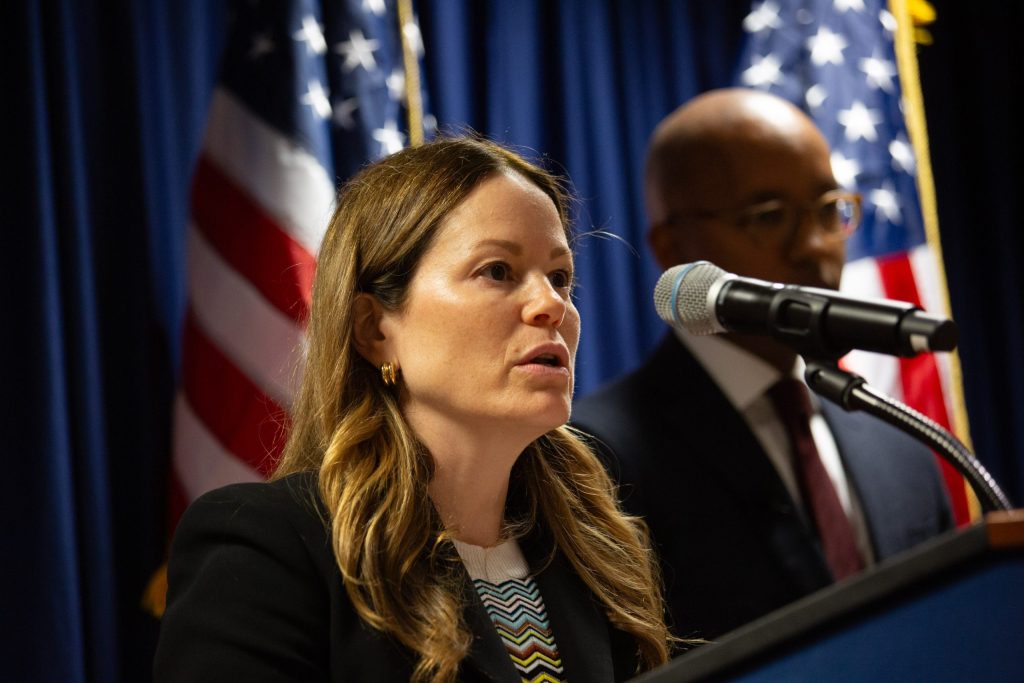City-funded shelter providers collecting millions of dollars to provide shelter to a near-record number of homeless New Yorkers are rife with nepotism, bloated executive pay and double-dipping, according to an extensive report released by the city’s Department of Investigation on Thursday.
The 94-page report took a deep dive into the finances of 51 of the city’s largest nonprofit shelter providers and found that all of them had at least one issue of concern, while several had multiple red flags investigators brought to the Department of Homeless Services.
“When it comes to protecting the vast taxpayer resources that City-funded nonprofits receive, prevention is key,” said DOI Commissioner Jocelyn E. Strauber said in a statement. “City-funded nonprofit service providers pose unique compliance and governance risks, and comprehensive City oversight is the best way to stop corruption, fraud, and waste before it starts.”
Neha Sharma, a spokesperson for DHS said they’d cooperated extensively with the DOI probe and had identified some of the issues described in the DOI report before that agency got involved. DHS had already cut ties with three problematic nonprofits described in the report and requested corrective action from at least two others, she added.
The agency has no power over the executive pay at independently-run nonprofits, she added, but that the agency takes the other findings in the report seriously.
“The most egregious findings in this report are related to a minority of DHS providers and the agency has stopped doing business with several of those providers,” Sharma said. “We know that the majority of our human services providers, notably the incredible frontline staffers working across our provider network step up to deliver for vulnerable New Yorkers and do the right thing every day, and a few bad actors and actions at the executive level do not represent the work of the organization as a whole.”
The city’s sprawling homeless shelter system currently houses 86,000 people each night, at a cost of $4 billion annually in the last fiscal year. That’s up from $2.7 billion two years earlier, a spike that’s come with a surge of asylum seekers arriving from the country’s southern border. The DOI findings largely pertained to traditional homeless shelters, not the “sanctuary facilities” for migrants also overseen by the agency.
Executive Pay
Current city regulations require nonprofits doing work with the city to have “reasonable” executive compensation, with no specific threshold for what reasonable might be.
The report pointed to five of the nonprofits where executives raked in more than $700,000 annually, and another eight where executives earned more than a half a million. The report flagged two such nonprofits with striking executive pay; CAMBA Inc. where president Joanne Oplustil earned more than $750,000 in fiscal year 2022, and the Acacia Network where president Raul Russi took in $935,391 that fiscal year.
The report recommended the city develop clear and enforceable guidance for all agencies on reasonable executive compensation. A spokesperson for the mayor’s office didn’t immediately return a request for comment. A spokesperson CAMBA declined to comment, deferring to DHS.
A spokesperson for Acacia referred to the nonprofit’s response in a footnote of the DOI report, which stated that its executive salaries were based on “combined revenue, budget, and assets” and noted a third-party consultant had found its pay “meets the standard of reasonableness” established by the IRS.
Nepotism
City rules are supposed to prevent nepotism by barring nonprofit executives doing business with city agencies from hiring members of their family without written permission from the Department of Homeless Services. But DOI found nonprofit shelter providers nonetheless did so.
The group Black Veterans for Social Justice — which operate nine active shelter contracts worth $370 million — initially told DOI investigators it didn’t have any immediate family members of senior executives or board members on its payroll. But the DOI later found two adult children of the president and CEO Wendy McClinton had worked at the nonprofit since 2007. One of those children was also collecting a DHS salary at the time they were employed by the nonprofit, the report found.
A spokesperson for the nonprofit didn’t immediately return a request for comment.
At another shelter provider — South Bronx Overall Economic Development Corporation — at least five relatives of senior staffers were hired without written approval, the report found. DOI shared this information with DHS, which told the DOI on Oct. 1 it had ended all contracting with the nonprofit.
A spokesperson for the South Bronx Overall Economic Development Corporation didn’t immediately return a request for comment.
Double-dealing
The report also laid out a number of instances where nonprofit executives were double-dipping, collecting additional cash by hiring subcontractors in which they had a financial stake. Those subcontractors provided food, security, and other services at the shelters they managed.
In other examples, executives at nonprofits had a financial stake in real estate their groups used, the report found.
In one example, the nonprofit SEBCO Development Inc. — which has about $35 million in city shelter contracts — hired a for-profit security company it also owned, allowing executives to collect hundreds of thousands of dollars in salary payments from the security company — funded through the nonprofit city contract.
Another four companies affiliated with the husband of a SEBCO executive were hired for extermination, maintenance and cleaning at the city-funded shelters.
A spokesperson for SEBCO didn’t immediately return a request for comment. Sharma, the DHS spokesperson, said the nonprofit runs two shelters and the agency is in the process of reviewing next steps for potentially renewing those contracts.

